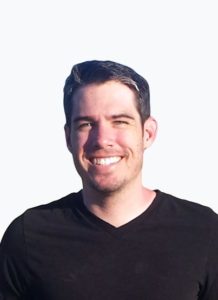Most hearing aids also have Bluetooth built directly into them, allowing you to make calls, or listen to music or podcasts while exercising.
Moisture
Hearing aids are essentially tiny computers. Thus, the internal electrical components are susceptible to damage from moisture. While most hearing aids are not considered to be fully waterproof, they are highly water resistant. In fact, they have an IP rating of 68. The IP scale refers to an object’s resistance to penetration by solid objects and liquid. The second number refers to liquids, with 8 being the maximum resistance. Thus, most hearing aids are able to hold up well against rain, sweat and humidity. So, for most people, as long as they are being mindful, moisture should not be too much of a concern, even during the summer months.
However, there are special situations. If you live in a humid environment, or in a place where temperatures get especially high (as I experienced growing up in Phoenix), the aids are going to be constantly subjected to moisture in the form of sweat or condensation. Thus, the risk of water sneaking its way inside the casing increases. In these situations, a dehumidifier is very useful. It wicks out the moisture when the user is not wearing them. Rechargeable hearing aids actually have a dehumidifier built into the charger. You would just need to add the desiccant, which can be found in most stores. For those with regular batteries, a standalone dehumidifier may be purchased. They can be electronic or manual, and are quite affordable.
Now, what about those who want to hit the pool or lake to cool off? Again, most hearing aids are not recommended for these types of activities, as they would be submerged. But not being able to hear in these environments isn’t ideal either. Fortunately, for those looking to try hearing aids or upgrade their current set, Phonak has just released the Audeo Life, which is truly waterproof! You can wear it in all types of moisture, including being submerged up to one and a half feet. Beat the heat while still being connected to the world around you.
Travel
According to estimates, 82% of Americans took part in some form of travel last summer. Hearing aids can help patients enjoy their trip to the fullest. Fortunately, hearing aid chargers are compact, making for easy transport. Most charger cords are USB cables, meaning they can be plugged into a port if an outlet is not readily available. In some cases, you might not even need to plug in the charger. Phonak has an external battery, called a power pack, which can be attached to the bottom of the charger case. Oticon has a separate smart charger, which is designed specifically for travel. Both of these options allow a patient to charge their hearing aids for a week without the need for an outlet. This can be convenient in situations such as camping, when electricity may not be readily available.
One risk of summer travel is losing a hearing aid. Some manufacturers, such as Oticon, have a feature on their app called Find My Hearing Aid. If you were to get home and realize you had misplaced one, you could open the app and it would tell you the general location of where it was left. Note that this is not a universal feature among all manufacturers. Also keep in mind that all hearing aids come with a multi-year warranty. If you lose your hearing aid and are unable to find it, the manufacturer will replace it one time for a small restocking fee. You will need to contact your audiologist to do so.
Fitness
Summer is a wonderful time to take evening walks or exercise outdoors. Newer hearing aids are being developed with health and fitness in mind. Some models are able to track step count, while others can even go as far as monitoring your heart rate. This is still a new frontier, but one that is quickly expanding. Most hearing aids also have Bluetooth built directly into them, allowing you to make calls, or listen to music or podcasts while exercising. And it can all be done in one package, eliminating the need for too many accessories on the body.
As always, your audiologist will be able to guide you toward the model that best suits your needs. QCBN
Jeff Lane, Au. D.
Trinity Hearing Center is located at 1330 N. Rim Dr., Suite B in Flagstaff. For more information, visit the website at TrinityHearing.net. Jeff Lane is a doctor of audiology with a passion for improving the lives of others. Dr. Lane may be reached at 928-522-0500 or at audio@trinityhearing.net.






Leave a Reply